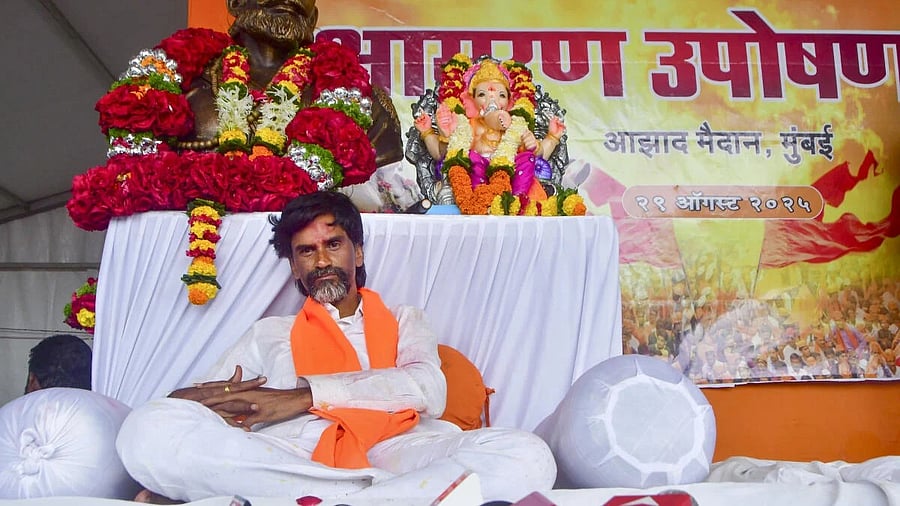
Activist Manoj Jarange Patil during his indefinite hunger strike demanding Maratha reservation.
Credit: PTI Photo
Both the Maharashtra government and the Maratha reservation activist Jarange-Patil claimed victory as they reached an agreement last week. His protest fast had entered the fifth day and created turmoil in Mumbai. The government has bought peace but it is not certain whether it is permanent. The agreement does not cover all contentious matters and implementation may bring up problems. The government has accepted many of Patil’s demands, including the one for implementing the Hyderabad Gazetteer, which would enable Marathas from the Marathwada region to establish their Kunbi credentials and claim reservation benefits. The government has not accepted the demand for recognition of all Marathas as Kunbis—it told the agitators that it was unlikely to stand scrutiny in the courts. Other demands, such as the withdrawal of police cases against Maratha activists, granting of compensation to family members of those killed in the protests, and forming committees to scrutinise applications for caste certificates, would not present any problems.
The Maratha reservation question, which has vexed governments and gained momentum in recent years, cannot be considered resolved with the formalisation of this agreement. The Devendra Fadnavis government has gone further than previous governments by accepting six of the eight demands made by the agitators. But implementation will not be easy and every step that the government takes will be challenged in the courts. The agitators are unlikely to take a negative judicial verdict for an answer. There will be a backlash from the Other Backward Classes (OBCs) who would feel that the reservation for the Marathas is at their expense, because there is an overall cap of 50% on caste-based reservations. The OBC communities are powerful and the government would not want to lose their support. Cabinet minister and OBC leader Chhagan Bhujbal has already expressed his apprehensions about the impact of the agreement. He has said while a Kunbi can claim reservation on the basis of a certificate that he is a Kunbi, Marathas cannot claim to be Kunbis and claim reservation.
While Marathas are a politically dominant and economically powerful group in Maharashtra, agrarian distress, unemployment and the shrinking of the economic pie have hit many members of the group, especially in rural areas. They have thought of reservation as a solution to their problems. Previous attempts to grant reservations to them have failed and the Supreme Court struck down a 2018 state law granting it. There is no survey which proves the social and economic backwardness of the Maratha community. The implementation of the agreement will therefore run into political and legal obstacles. The agreement could also trigger demands for reservation from dominant communities in other states.
